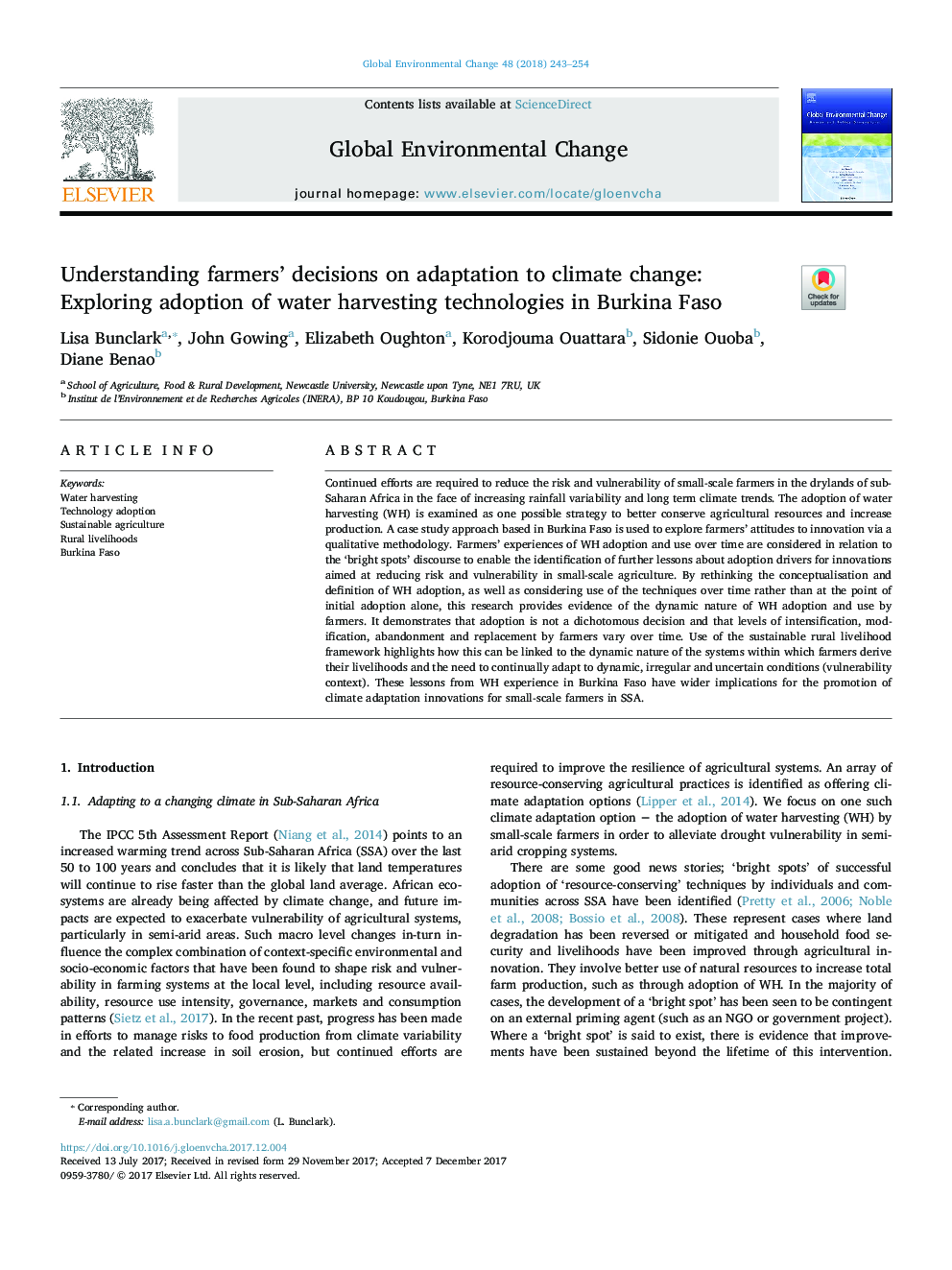| Article ID | Journal | Published Year | Pages | File Type |
|---|---|---|---|---|
| 7469131 | Global Environmental Change | 2018 | 12 Pages |
Abstract
Continued efforts are required to reduce the risk and vulnerability of small-scale farmers in the drylands of sub-Saharan Africa in the face of increasing rainfall variability and long term climate trends. The adoption of water harvesting (WH) is examined as one possible strategy to better conserve agricultural resources and increase production. A case study approach based in Burkina Faso is used to explore farmers' attitudes to innovation via a qualitative methodology. Farmers' experiences of WH adoption and use over time are considered in relation to the 'bright spots' discourse to enable the identification of further lessons about adoption drivers for innovations aimed at reducing risk and vulnerability in small-scale agriculture. By rethinking the conceptualisation and definition of WH adoption, as well as considering use of the techniques over time rather than at the point of initial adoption alone, this research provides evidence of the dynamic nature of WH adoption and use by farmers. It demonstrates that adoption is not a dichotomous decision and that levels of intensification, modification, abandonment and replacement by farmers vary over time. Use of the sustainable rural livelihood framework highlights how this can be linked to the dynamic nature of the systems within which farmers derive their livelihoods and the need to continually adapt to dynamic, irregular and uncertain conditions (vulnerability context). These lessons from WH experience in Burkina Faso have wider implications for the promotion of climate adaptation innovations for small-scale farmers in SSA.
Related Topics
Life Sciences
Environmental Science
Environmental Science (General)
Authors
Lisa Bunclark, John Gowing, Elizabeth Oughton, Korodjouma Ouattara, Sidonie Ouoba, Diane Benao,
